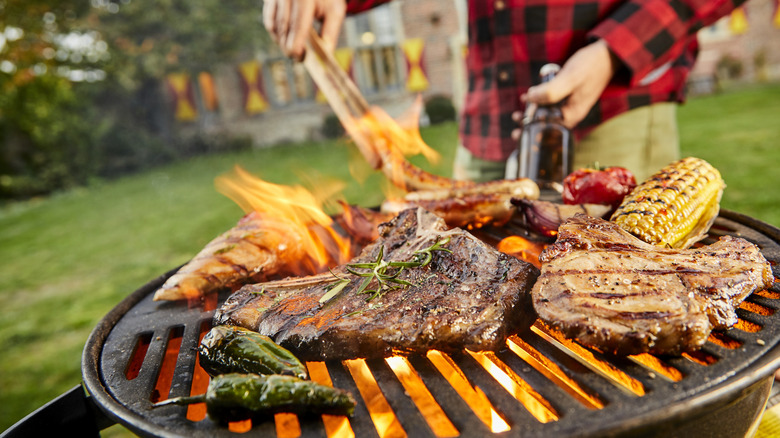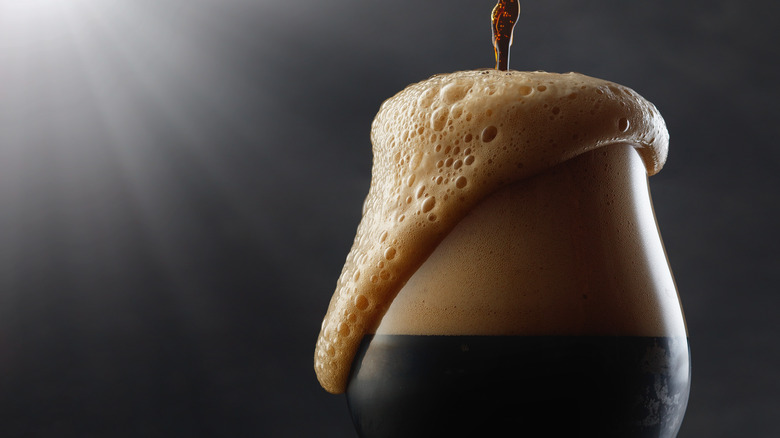How Marinading Your Meat In Beer May Help Protect Your Health
Here in the United States, we think of barbeque as quintessentially Southern cooking. But, in reality, the art of grilling meat dates back over two million years, when our inventive and determined ancestor, homo erectus, first tamed flames and used them to prepare food (via The Harvard Gazette). For primitive man, grilling meat and eating around the fire became a matter of community and worship — and in many cultures, it still is.
However, our Paleolithic progenitors had no way of knowing that, as their juicy dinner sizzled over an open fire, each drop of fat and fluid that fell and hit the coals filled the air — and thus, their food — with polycyclic aromatic hydrocarbons (PAH), per the National Cancer Institute.
PAHs, as well as Heterocyclic amines (HCAs), are classes of chemicals formed when meat is cooked at high temperatures. While cooking foods other than meat rarely releases HCAs, PAHs can be found in a number of other cooked food items, as well as in the smoke that comes from burning cigarettes and crude oil. Through extensive research, it has been well established that both PAHs and HCAs are carcinogenic, and that exposure to them increases the risk of a multitude of cancers (per Agency for Toxic Substances and Disease Registry). Luckily, new research has indicated that there's a way to reduce the amount of PAHs present in your dinner, and it starts with a nice cold bottle of beer.
Beer's effect on PAH formation
While the idea of pouring a cold one out over your dinner may sound strange, the practice of cooking with beer is nothing new. The Irish, for example, have long used beer to enhance flavor and add depth to traditional Irish fare (per NPR). In recent years, researchers have learned that cooking with beer doesn't just improve the taste of food, but can make it healthier, too.
A 2014 study published in the Journal of Agricultural and Food Chemistry revealed that when cuts of pork are marinated in beer before grilling, the amount of PAHs formed during the cooking process decreases significantly. According to the study, cuts of pork were marinated for four hours in pilsner, black beer, and non-alcoholic pilsner. After grilling each of the cuts over charcoal, researchers determined that marinating the pork in black beer reduced the formation of PAHs by 68% in comparison to unmarinated meat. What's more, PAH formation was reduced by 36.5% with the pilsner-marinated cut and 25% with the steak marinated in a non-alcoholic pilsner.
While the study team suggested that more research was necessary, they suggest that the reason behind the reduction likely has something to do with antioxidants. The study's author, Isabel Ferreira, explained that antioxidants are experts at "mopping up" free radicals, such as those that turn to PAHs during the cooking process (per Chromatography Online). Surprisingly, many beers are chock full of antioxidants — especially darker-colored beers, like the black beer used in the study (per WebMD).


